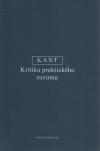
Immanuel Kant. Critique of Practical Reason
While Kant’s Critique of Pure Reason (1781, 1787) deals with theoretical philosophy, the Critique of Practical Reason (1788) discusses his practical philosophy and presents, in its entirety, the theory of moral law outlined already in the Groundwork of the Metaphysics of Morals (1785). It also offers Kant’s definitive answer to the question of metaphysics, presenting the nucleus of his reformed concept of metaphysics. The second, amended, edition of Jaromír Loužil’s translation of Kant’s Critique of Practical Reason (first published in Prague in 1996 by Svoboda Publishers), prepared by Jan Kuneš and Milan Sobotka, contains corrections of various oversights and inaccuracies and seeks to render some formulations more precise. This edition also includes an extensive subject index.
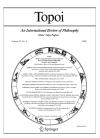
Elected Extremists, Political Communication and the Limits of Containment
The paper examines the complex relation between anti-democratic forces ("the extremists") and the broader liberal-democratic institutional environment. The task of containing extremists is analysed both from a theoretical standpoint and in terms of its practical feasibility. I argue that the realities of political communication and the character of political argumentation make containing extremism in practice a much more daunting proposition than is usually understood in the literature. Insights from political philosophy, political science and communication theory are brought together to press these points.
Download from Academia.edu

Tacit consent and political legitimacy
Though historically important, the notion of tacit consent plays little role in contemporary discussions of political legitimacy. The idea, in fact, is often dismissed as obviously implausible. The ambition of this paper is to challenge this assumption and show that tacit consent can become a key ingredient in a theory of legitimacy. Instead of defining tacit consent through residence (where, according to John Locke or Plato's Socrates, staying in the country amounts to tacitly consenting to its system of rule), the paper explores a different strategy, delimiting tacit consent as an absence of active dissent.
Download from Academia.edu
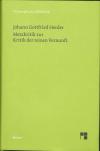
Johann Gottfried Herder. Metakritik zur Kritik der reinen Vernunft. [Johann Gottfried Herder. Metacritique of the Critique of Pure Reason.]
Eighteen years after Immanuel Kant’s Critique of Pure Reason had appeared, Johann Gottfried Herder published an extensive and rigorous critique of Kant’s opus magnum. Far from being a purely critical study, Herder’s Metacritique is also a presentation of his own thought in metaphysics and epistemology.
Herder rejected Kant’s so-called “Copernican revolution” with its preference of the subject and considered Kant’s precritical thinking the better theory. In his Metacritique, Herder connects epistemology with philosophy of language, history and cultural theory with metaphysics and universalistic values. He criticizes the subject-centred and mechanist theory of his days and presents a keen and detailed analysis of Kant’s transcendental theory.
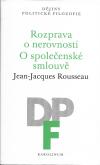
Jean-Jacques Rousseau. Rozprava o nerovnosti. O společenské smlouvě (Discourse on Inequality. Of the Social Contract)
The book contains the new Czech translation of the Discourse on the Origin and Foundations of Inequality among Men (1755) and The Social Contract, these texts being the core of Rousseau’s political theory. The New Czech translations brings to the reader the first complete translations of the Discourse on Inequality and after more than seventy years a new translation of The Social Contract. The Discourse on Inequality is published for the first time with the Dedication to the Genevan republic as well as the reactions of Rousseau’s opponents and Rousseau’s answers. Both texts are accompanied by a rich commentary that shows the context of author’s life and work, as well as the historical and political context of Europe of the Enlightenment and thus helps to better understand Rousseau’s political theory and his importance for our present time.
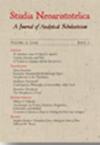
Wolterstorff on Reid’s Notion of Common Sense
The paper addresses a mainstream contemporary view of the notion of common sense in Tomas Reid’s philosophy, as proposed by Nicholas Wolterstorff who claims that Reid was not clear about the concept of common sense, or about the principles of common sense. In contrast, this paper presents Reid’s conception as a clear and traditional Aristotelian notion of common sense and its principles as presuppositions of particular sense judgments, usually taken for granted. Te alleged confusion about principles is resolved by a distinction between principles of common sense and first principles as such.
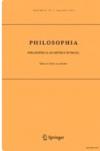
Common Sense and the Natural Light in George Berkeley’s Philosophy
It is argued that George Berkeley’s term ‘common sense’ does not indicate shared conviction, but the shared capacity of reasonable judgement, and is therefore to be classed as a mental ability, not a belief-system. Common sense is to be distinguished from theoretical understanding which, in Berkeley’s view, is frequently corrupted either by learned prejudice, or by language that lacks meaning or camouflages contradiction. It is also to be distinguished from the deliverances of divine revelation, which—however enlightening Berkeley supposed them to be—are not necessarily available to all people. This interpretation of common sense is supported both by attention to Berkeley’s own texts, including his sermons, letters and philosophical writings, and by attention to the views of John Locke and René Descartes, who also understand ‘common sense’ as susceptibility to the ‘natural light’. In addition, this interpretation renders Berkeley’s appeal to common sense in support of his immaterialism a straightforward appeal to the reader’s native reason. No longer, then, are we forced to see Berkeley as improbably maintaining that the denial of matter is really the view of ‘the common people’, but rather that those who have least attachment to theory and doctrine will be best able to grasp the case for immaterialism.
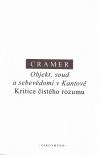
Cramer, K., Objekt, soud a sebevědomí v Kantově Kritice čistého rozumu
(Cramer, K., Object, Judgement and Self-Consciousness in Kant's Critique of Pure Reason)
Konrad Cramer (1933–2013) was an important representative of the so-called Heidelberg School. Following its founder, Dieter Henrich (*1927), he focused on the philosophical problem of subjectivity and linked current discussions on this subject with various motifs from Modern philosophy. Cramer was an excellent interpreter of Modern philosophy; especially valuable was his contribution to the interpretation of works of Immanuel Kant. Cramer’s studies collected in this book pertain to Kant’s Critique of Pure Reason. They offer discussions of Kant’s concept of object, judgement, and self-awareness, while interpreting also other important elements of Kant’s theoretical philosophy. The last study included in this volume deals with the relation between Kant’s and Fichte’s concept of self-awareness and documents links between Kant’s philosophy and the nascent philosophy of German idealism.
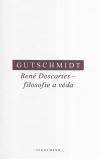
René Descartes – filosofie a věda
(René Descartes – Philosophy and Science)
René Descartes (1596–1650) is the founder of Modern philosophy and one of the most influential scholars in philosophy and science. We are indebted to his investigations for crucial insights into the very foundation of human spirits and its difference from the material world, for insights into the mathematical structure of nature, or crucial observations regarding non-Euclidean geometry. Descartes is an elegant writer, but his thoughts are not easy to understand. This introduction presents the most important of his thoughts and theories as well as the philosophical background against which Descartes’ work developed from his earliest writings, never published during his life, all the way to his last works. It also addresses some other interesting and important topics, such as what God meant to Descartes, what Descartes was interested in regarding human soul, what his ‘ethics’ was, and what were the basic outlines of his philosophy of nature.
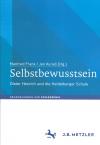
Selbstbewusstsein. Dieter Henrich und die Heidelberger Schule
(Self-consciousness. Dieter Henrich and the Heidelberg School)
Dieter Henrich (*1927), along with Jürgen Habermas and Ernst Tugendhat, is the most important voice of post-war German philosophy. In his contributions to a theory of self-consciousness, especially in the 1960s and 1970s, he forcefully contradicted the prevailing anti-subjectivism of the Heidegger-Gadamer tradition, but he also developed a powerful critique of the ‚Linguistic Turn‘ which had led to a philosophical narrowing of analytic philosophy. Henrich is the only living German philosopher who succeeded, by way of his legendary 1973 lectures at Harvard, in creating an interest in idealist theories of self-consciousness (especially those based on J. G. Fichte) among the important thinkers of the then soon to be called ‚Philosophy of Mind‘. The book offers the first, and as yet the only, existing presentation of the basic theses of Henrich and the so called Heidelberg School. The papers included in this volume analyze Henrich‘s theses in an exploratory but by no means uncritical attitude, and thereby continue the conversation with Henrich‘s American colleagues initiated by him in the 1970s.




